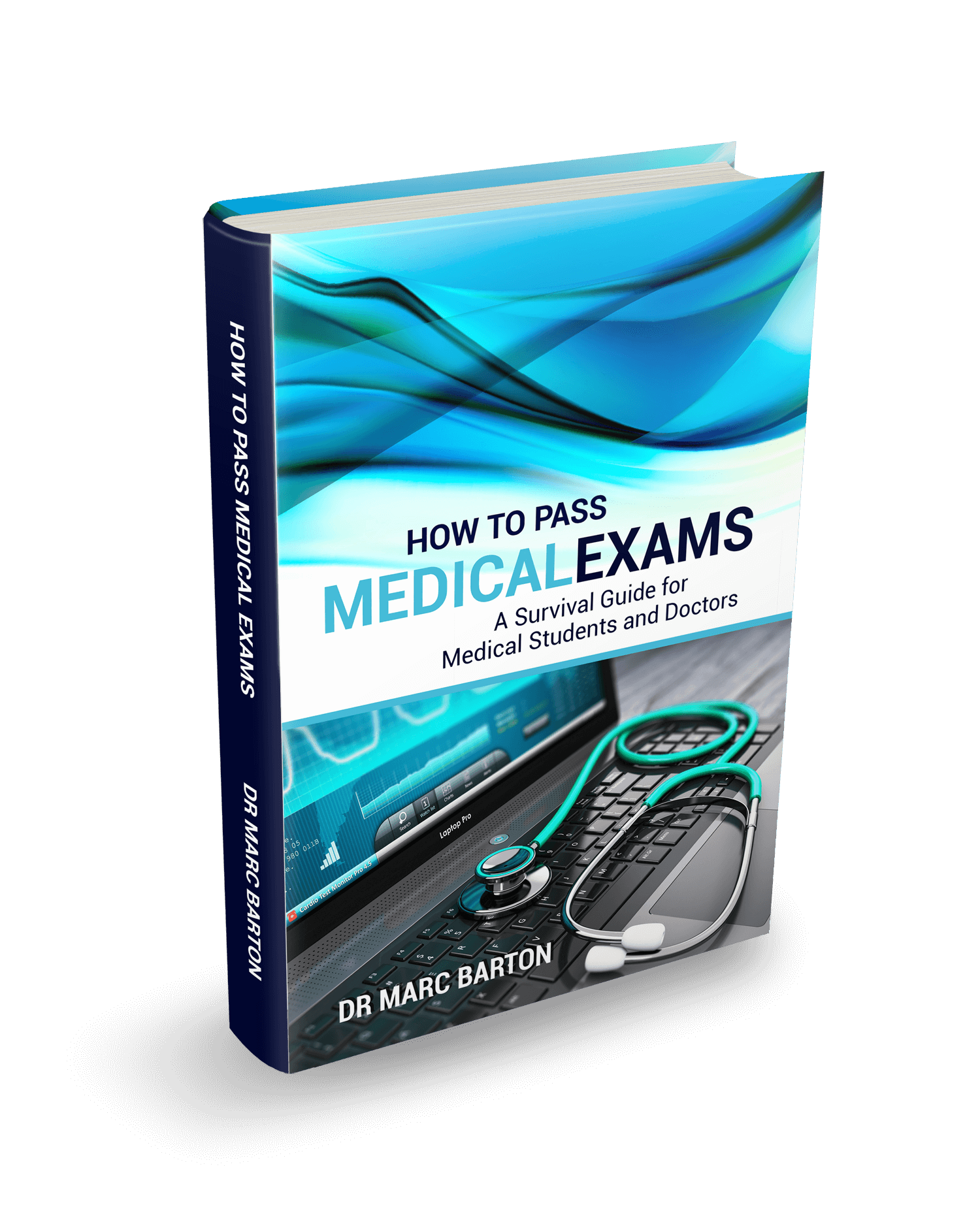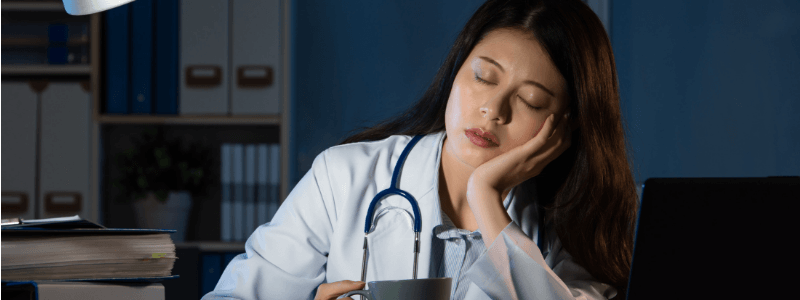In the 14 years or so that I worked regular night shifts in the Emergency Department, I’m not sure I can honestly say that I ever fully adapted to them. It is well recognised that there is an increased risk of poor decision-making and errors at night, and it is, therefore, essential to learn how to properly prepare for nights and adapt to daytime sleeping.
Our sleep patterns are controlled by an internal daily body clock referred to as the circadian rhythm. This circadian rhythm is the reason we tend to feel energised and drowsy at roughly the same time each day. The circadian rhythm works best when we have regular sleep habits, and it is also the reason that many shift workers find it difficult to sleep during the day.
In my experience there seem to be two types of shift worker; one group who adapt effortlessly and sleep like a baby during the day, appearing looking well rested and glamorous to the following nights shift. I, unfortunately, belonged to the second group, sleeping poorly, if at all during the day, always struggling to adapt my body clock, and looking more like an extra from the walking dead on my shifts than my day sleeping, night-loving colleagues. While I never fully adapted, I did learn to cope and to survive, and for many shift workers, this will be as good as it gets. If you fall into the second group with me, I hope that some of these strategies will prove to be as useful for you as they were for me.
- Get plenty of sleep before your first night shift
Working a run of night shifts disrupts the circadian rhythm and causes a cumulative development of mental and physical fatigue called sleep debt. The best way to prepare for your night shifts is to try and ‘get ahead’ of this imminent sleep debt by ensuring that you are well rested before the start of your first shift.
I recommend trying to get a decent lie-in the morning before the first night shift. Don’t overdo things during that day and try to have a peaceful and restful day. Taking an afternoon nap before is also a great idea, and if possible, a couple of hours is ideal.
- Use caffeine, but with caution
Caffeine, also known as trimethylxanthine, is the world’s most commonly used stimulant, with over 80% of Americans estimated to use it on any given day. The most well-known source of caffeine is the bean of the Coffea Arabicaplant, which is used to make my favourite beverage, coffee. Coffee has been used in human society for hundreds of years, and is reported as being discovered in Ethiopia in 800 A.D. Caffeine is also present in other drinks such as tea and numerous soft drinks and energy drinks.
Many shift workers, myself included, have used caffeine as a stimulant at some point to help keep them awake. It is a very effective stimulant and starts working about 20 minutes after ingestion. Caffeine, however, is something of a double-edged sword and it can cause side-effects. The adverse effects of caffeine become most pronounced if it is ingested in large quantities. If you drink too many cups of coffee, you should expect to experience jitteriness and mild anxiety-type symptoms. It can also cause sleep disturbance and is an addictive substance with a recognised withdrawal syndrome. Other, less common, side effects include palpitations, gastrointestinal disturbances, high blood pressure, tremors, and dizziness.
It is worth remembering that the half-life of caffeine is approximately 6 hours so if you ingest it in the second half of your shift, you will likely still have a large quantity of it in your bloodstream when you return home and are trying to sleep. For this reason, I would tend to have a cup of coffee in the early evening before leaving to go to my shift, but I would avoid ingesting it while on the night shift itself.
- Take a nap during your shift
The lowest point of the circadian rhythm is generally between 3 am and 6 am. It is during this period that the body is programmed to be at its least active and alert. This is also the time that the hospital tends to be at its quietest (although we all know that this is not always the case!). Taking a short 20-30 minutes nap at this time can nicely counteract fatigue and give you a second wind for the end of the shift.
Doctors in the UK under the EWTD (European Working Time Directive) are entitled to a 30-minute break after each 4 hours of work, and many other organisations around the world have a similar policy in place. You should, therefore, be able to take a couple of short breaks during a 10-12 hour night shift. I would recommend using one of these breaks for a nap and the other to eat. If you are working in a team or have a second doctor on duty, try to coordinate so that you can cover for each other during your nap time.
- Eat and drink properly
It is crucial to make sure you have eaten a decent meal and are well hydrated before the shift starts. Working night shifts can reduce appetite and canteen facilities are often very limited. Doctors are also well known for neglecting themselves on shift, particularly if it is very busy, and it can be very easy to forget to eat and drink. One famous study beautifully illustrated this by comparing the urine output between junior doctors in an intensive care unit and the patients for whom they were responsible. The study concluded that it was more difficult for the doctors to manage their own urine output than that of their patients!
There is some evidence that low carbohydrate, high protein meals are best for maintaining alertness during night shifts, so bear this in mind when preparing or ordering your nightshift food. Grazing on snacks can be an excellent way to keep your energy levels even throughout the shift, but try to stick to healthy snacks, such as nuts and fruit. It is advisable to avoid high sugar snacks, such as chocolate bars and doughnuts, as the resultant ‘crash’ that occurs afterwards can be profound and difficult to cope with on nights. If you don’t have access to a 24-hour canteen make sure you take food with you to the shift and also take a large bottle of water with you and always keep it close to hand.
- Get home safely!
Driving home from the night shift is more dangerous than returning from any other shift. Many years ago I was pulled over by the Police on suspicion of drink driving on the way home from a shift. I had inadvertently drifted across a lane and gained their attention. Fortunately, the Police were very sympathetic to my exhausted state, and the experience helped to wake me up and send me safely on my way home.
If you have a long drive pay careful attention to your safety and take rest breaks. It may be safer to use public transport if this is in any way a possible alternative. Another option is sleeping in hospital accommodation provided for night workers at some hospitals.
- Sleeping during the day
This was the most challenging aspect for me. I worked mostly in London during my early years as a junior doctor, and it was always noisy and busy. The experience of unsuccessfully trying to grab a few hours of fitful sleep reduced me to tears on more than one occasion.
Try and get to sleep early if at all possible and don’t wait until later in the day to go to bed. It has been shown that shift workers that sleep before 10 am tend to get 4 hours sleep, compared to those that sleep at noon for only an hour.
Blackout window blinds or curtains are an absolute must; if you don’t already have them, they are a sound investment. Try to use anything you can to block out background light and noise. Other things that I have tried over the years include eye masks, earplugs, and using a fan for background noise. Put a do not disturb notice on your door if you are in shared accommodation. Another tip that is relatively new to me is to consider wearing dark sunglasses on the way home if you aren’t driving. This will reduce your exposure to bright sunlight, which is a trigger to reset the body clock to a daytime schedule. Try to avoid watching TV, or looking a computer or tablet screens before you go to bed, as the blue light exposure from electronic devices can be very disruptive.
Eating a meal before you retire to bed can also help to make you sleepy. I found that eating a carbohydrate-laden meal shortly after arriving home would make me quite sleepy and help me to get off quickly. Obviously, avoid stimulants, such as caffeine and nicotine before you go to bed too.
If you wake early and can’t get back to sleep, try not to panic. Get up and do something relaxing, read a book in a different room, watch TV, or listen to music. Once you feel more relaxed and tired, go back to your bedroom and try again later. I sometimes used to sleep in a couple of 2-3 hours blocks, just try your best to reduce your sleep debt to the minimum that is possible.
If you are really struggling to adapt to night shifts consider speaking to your doctor about sleeping tablets, however, these can cause hangover effects and other more serious problems, such as addiction. Sleeping tablets should really be a last resort.
Good luck with your next set of nights!
Medical Exam Prep would like to thank Dr. Marc Barton for this guest article.
About Dr. Marc Barton
Dr. Marc Barton qualified from Imperial College School of Medicine in 2001. Since that time he has worked in a variety of different medical specialities. He worked as a GP partner from 2006 until 2008 and more recently as a higher specialist trainee in Emergency Medicine.
Dr. Barton’s first book, ‘How to Pass Medical Exams’ is available for purchase here:
Header used on licence from Shutterstock





